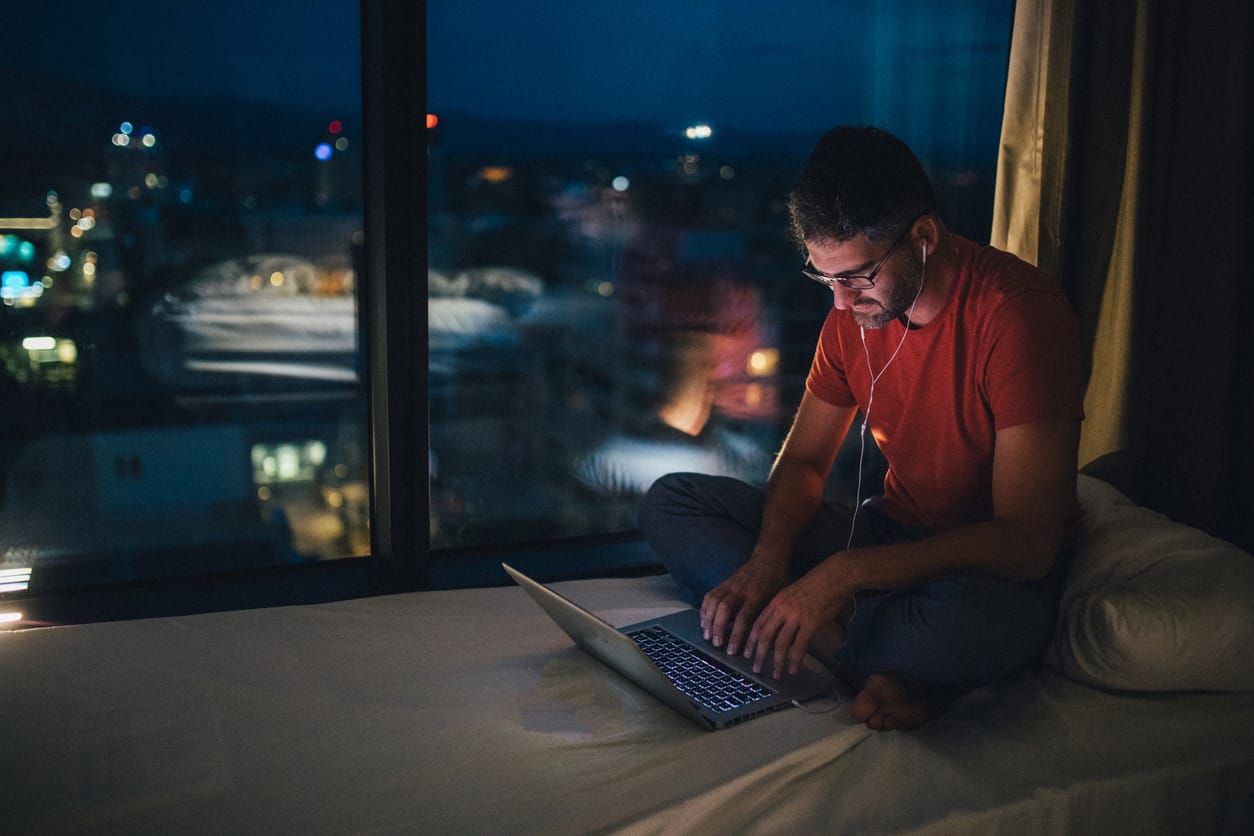
Given the turbulence and uncertainty of the last few months, it’s no surprise to learn that many of us have been struggling to sleep. Repetitive thoughts about finances, employment and of course, the virus itself, are all common – and understandable – reasons to worry at night. But, as psychoanalyst Jason Brennan explains, there are lots of things you can do to help get your sleep patterns back on track.
A Lack of Structure
On a practical level, says Jason, many of our routines shifted considerably once lockdown began back in March. This had huge knock-on effects in terms of mental health and sleep. “Before, people would go to bed at the same time each night, to prepare for work the next day. When offices shut, they started staying up later.” Next, schools closed, meaning parents weren’t dropping kids off in the mornings, instead feeling the pressure of home-schooling while juggling their own work demands. Exercise would usually help burn off some energy, but as Jason notes, “we couldn’t do that either, as we were cooped up in the house with a 2km radius rule.” Add into the mix unhealthy food, an excess of alcohol and caffeine, and you’ve got a real recipe for disaster when it comes to getting a good night’s sleep.

Stress Hormones
On a neurological level, lockdown has also had a huge impact. An overload of coronavirus information, as well as fretting about friends, family, jobs and finances, caused our collective stress hormones to soar. “When we’re worried”, Jason explains, “adrenaline and cortisol build up in our systems. These stress chemicals exist to help us fight things off – it’s a ‘fight or flight’ response.” Adrenaline, he explains, doesn’t want you to sleep, because in hunter-gatherer times, you’d have been vulnerable to attack. Even now, as we start to return to normality, Jason foresees a general collective sense of anxiety, or what he calls the ‘Covid Echo’. “There’ll be a lot of delayed psychological and emotional issues to deal with. Now we’re back on safe ground, we’re allowing ourselves to process, and that’s not going to be easy for some people.”
Benefits of a Sleep Plan
The key takeaway? If you’re feeling anxious and having trouble sleeping, you’re not alone. To help get things back on track, Jason suggests the following:
• Keep your bedroom dark, as it helps regulate melatonin in the body.
• Avoid stimulants like alcohol, caffeine and sugar.
• Shut off screens in the run-up to bedtime.
• Go for a run, brisk walk or do some high intensity exercise.
• Have a hot bath, as it will help eliminate some of those stress hormones from the body.
• Try a breathing exercise in bed to relax the body – guided meditations and visualisations can all help release feelgood hormones dopamine and serotonin.
And remember, don’t underestimate the importance of sleep. As Jason explains, it helps the body heal itself, allows us to process emotions and thoughts from the day, increases our short-term memory, and even reduces the risk of heart disease and stroke. If you’re struggling to nod off, take the time to put a routine in place, but speak to a healthcare professional if sleeplessness and anxiety persist.
The Couch Counsellor is an online series of recorded Q&A sessions for anyone who wants to get involved. The series features author, creator and writer of Netflix comedy drama Can’t Cope, Won’t Cope – Stefanie Preissner and Psychotherapist Jason Brennan who share some professional advice on ways to make the lockdown easier on your mental health. Click here to watch the series.



























